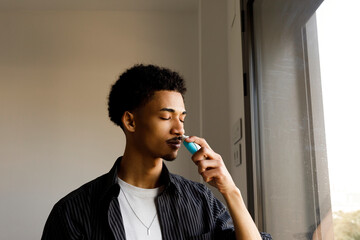Post nasal drip occurs when excess mucus builds up in the nasal passages and drips down the back of the throat. This condition can cause frequent throat clearing, coughing, bad breath, and even a sore throat. While post nasal drip is not a disease itself, it is often a symptom of allergies, sinus infections, or other underlying conditions. Fortunately, several effective treatments can help manage and alleviate this uncomfortable problem.
1. Stay Hydrated to Thin Mucus
One of the simplest and most effective ways to treat post nasal drip is to drink plenty of fluids. Hydration helps thin the mucus, making it easier for the body to clear it out. Water is best, but warm teas with honey can provide additional soothing benefits for the throat. Avoid beverages that can dehydrate you, such as those with caffeine or alcohol.

2. Use a Saline Nasal Spray or Rinse
Saline sprays or nasal irrigation systems like a neti pot can flush out mucus, allergens, and irritants from the nasal passages. These treatments can reduce congestion and minimize mucus buildup. Always use sterile or distilled water for rinsing to prevent infections. Regular use can be particularly helpful for individuals with chronic sinus issues or seasonal allergies.
3. Try Steam Inhalation
Inhaling steam is another way to loosen thick mucus. This can be done by leaning over a bowl of hot water with a towel draped over your head or by taking a warm shower. The steam moisturizes the nasal passages, which can ease irritation and help mucus drain more efficiently. Adding a few drops of eucalyptus or peppermint oil can enhance the effect, but only if you’re not sensitive to essential oils.
4. Elevate Your Head While Sleeping
Sleeping flat can make post nasal drip worse by allowing mucus to pool in the throat. Elevating your head with extra pillows or using an adjustable bed can reduce this effect. Sleeping on your back with your head raised is typically the most effective position.
5. Manage Allergies Effectively
Allergies are a common cause of post nasal drip, and managing them can prevent excessive mucus production. Over-the-counter antihistamines can reduce allergy symptoms, while nasal corticosteroid sprays can help decrease inflammation in the nasal passages. For severe allergies, consult a healthcare provider about prescription treatments or allergy testing.
6. Consider Over-the-Counter Decongestants
Decongestants can relieve nasal congestion and improve mucus drainage. They work by shrinking swollen nasal tissues, allowing for better airflow. However, they should only be used for a short period, as prolonged use can lead to rebound congestion. Always read labels and follow dosage instructions carefully.
7. Avoid Common Irritants
Environmental irritants like smoke, strong perfumes, and pollutants can worsen post nasal drip symptoms. Try to minimize exposure to these triggers whenever possible. Using an air purifier indoors can also help reduce airborne allergens and irritants that contribute to mucus buildup.
8. Watch Your Diet
Certain foods and beverages can make mucus thicker or trigger acid reflux, which can aggravate post nasal drip. Spicy foods, dairy products, and caffeinated drinks are common culprits. If acid reflux is contributing to your symptoms, consider eating smaller meals, avoiding late-night snacks, and limiting acidic or spicy foods.
9. Use Humidifiers in Dry Environments
Dry air can irritate nasal passages and increase mucus production. Using a humidifier, especially during winter months or in dry climates, can help keep the nasal passages moist and reduce irritation. Be sure to clean the humidifier regularly to prevent mold or bacteria growth.
10. Seek Medical Evaluation for Persistent Symptoms
If post nasal drip persists for more than a few weeks or is accompanied by fever, severe sore throat, or colored mucus, it may indicate an infection or other underlying condition. A healthcare provider can determine the cause and recommend appropriate treatments, such as antibiotics for bacterial infections or prescription nasal sprays for chronic inflammation.
These treatment options focus on reducing mucus production, improving drainage, and addressing the underlying causes of post nasal drip. By combining home remedies, over-the-counter options, and lifestyle adjustments, most people can find significant relief from this uncomfortable condition.